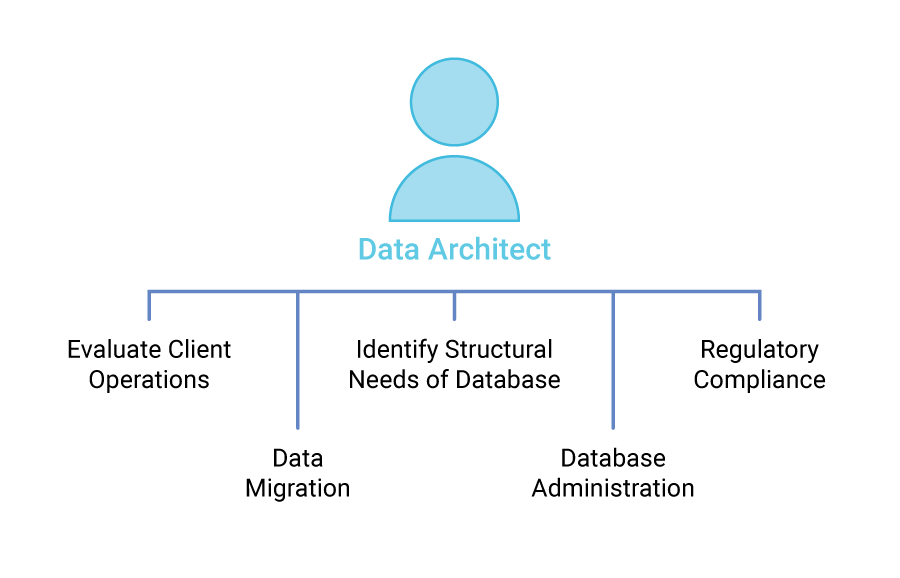Data Architect FAQs
What Does a Data Architect Do?
A data architect is focused on the design and implementation of data models and the database solutions to implement it. The data architect identifies the structural needs of the database by evaluating client operations, applications, and programming tools. Data architects are responsible for regulatory compliance with the implementation and change management procedures. Amongst data architect responsibilities, they oversee data migration from legacy systems and establish maintenance plans to keep databases secure and compliant. In some organizations, data architects may also handle database administration tasks such as database performance monitoring and incident response.
What’s the Difference Between a Data Architect vs Data Engineer?
A data architect usually starts as a data engineer who is responsible for implementation, but not the architecture, of data systems. The data engineer transforms and loads data, oversees storage, and extracts data in a way that enables data scientists to perform analysis and to feed machine learning pipelines. Having gained experience, a data engineer may move to a data architect role, in which they become responsible for system planning and design. In short, the data architect must understand the big picture and plan the higher-level design, while the data engineer operates within the framework created by the data architect. Individuals within these roles typically work together closely.
What’s the Difference Between a Data Architect vs Enterprise Architect?
Data architects and enterprise architects are both responsible for the design and oversight of IT systems, albeit different types of systems. The enterprise architect designs the infrastructure, middleware, and software frameworks that support business applications. The data architect is responsible for the data models, data types, data integrations, and data classifications that support the application layer and align with business requirements. Both need to understand the data model, use cases, and how the data will be queried. Enterprise application use cases cascade into use cases for data systems. For example, a user may need to run a report on orders for the last year, aggregated by customer, and sorted by highest total spend. The enterprise architect might design an application interface to enable applications to access the data. The data architect must design the data structures that will store the data and respond promptly to the query.
How To Become A Data Architect?
There’s no single path to becoming a data architect. It takes a combination of earning a degree, getting relevant experience, and often a certification. To pursue a career as a Data Architect, start with a bachelor’s degree in computer science, computer engineering, information technology, or a related area. Next, work in a relevant field, such as working as a software engineer, DBA, or systems analyst, working with applications that rely on databases. Then, specialize with relevant data engineering or data architect certifications, such as:
- Certified Data Management Professional (CDMP)
- IBM Certified Data Architect – Big Data
- SAS Certified Big Data Professional
- Cloudera Certified Associate (CCA) Spark and Hadoop Developer
- Amazon Web Services (AWS) Certified Data Analytics – Specialty
- Salesforce Certified Data Architecture and Management Designer
Does ScyllaDB Offer Solutions for Data Architects?
ScyllaDB provides the data architect with a suite of tools to assist in the design, implementation, and monitoring of distributed, low-latency NoSQL. In addition to providing a high-availability, low-latency NoSQL database, ScyllaDB is also compliant with a wide array of open-source and industry standard NoSQL management tools.
Browse our library of papers, webinars, and videos for data architects, or take advantage of ScyllaDB University (free training) to get started on your path to becoming a ScyllaDB NoSQL database expert.
